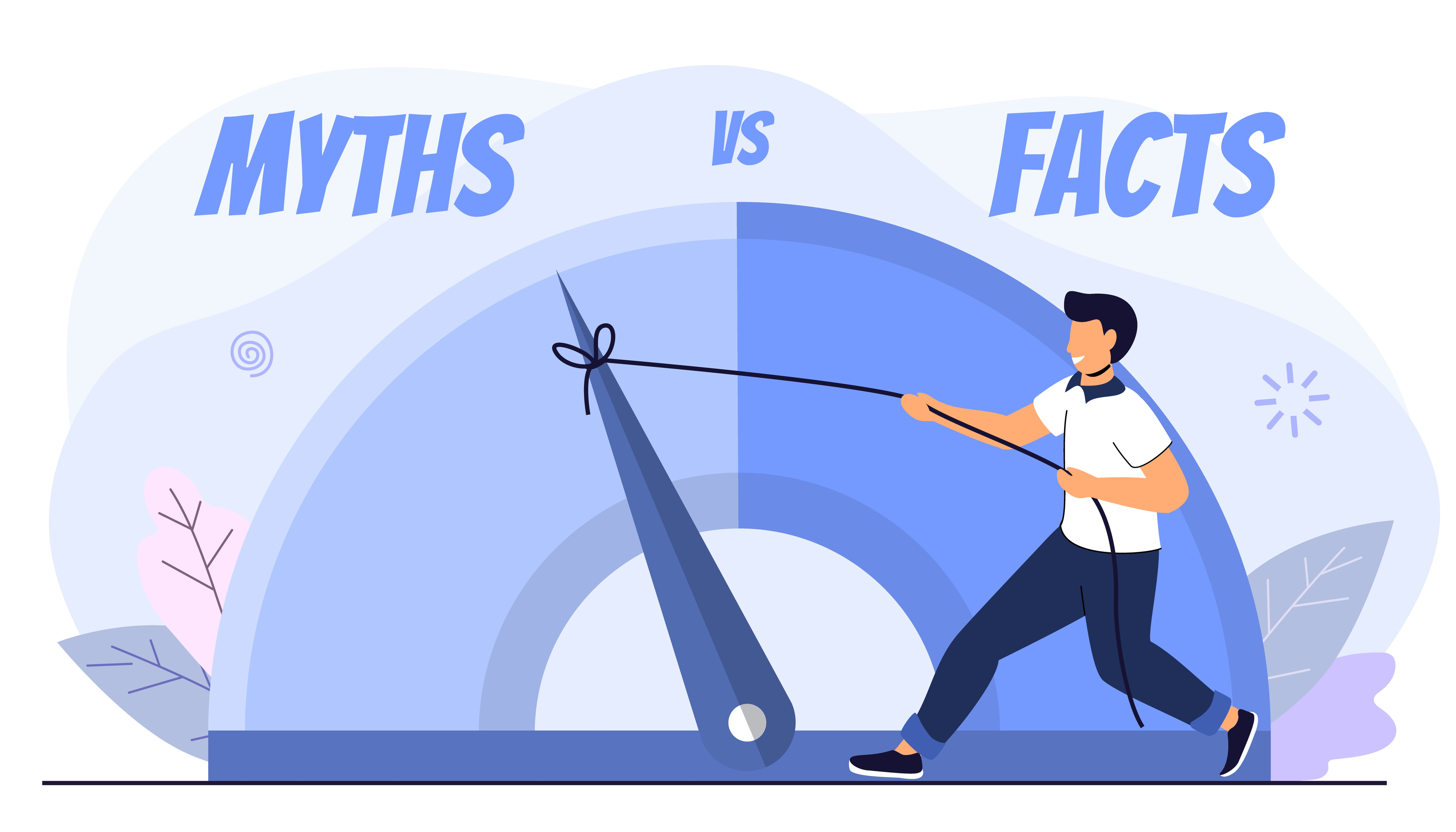Companies hope that business transformations will enable them to work more agilely, efficiently, and cost-effectively. However, for many, it remains a challenge to identify the areas and processes from which their business model can benefit significantly. The management level is particularly affected by numerous, still widespread myths about the process of business transformation.
Myth No.1: Business transformation projects take a lot of time.
The pandemic has shown that digital transformation processes can be quickly initiated, and new measures can be implemented in no time at all. In a situation where many companies had no choice but to digitize processes "overnight," it has been shown that quick successes can also be achieved quickly without a highly detailed strategy phase. With the right project management, sufficient involvement of executives, and a detailed roadmap, you can quickly and successfully achieve the milestones of your business transformation.
Myth No. 2 Only companies of a specific size can transform their business model. Comprehensive business transformation is not suitable for smaller companies.
In many cases, it is startups with only a few employees who work and think entirely digitally. Smaller and younger companies often have little fear of trying out new ideas and experimenting. However, experience has shown that companies of any size should be open to innovations to remain competitive and meet the needs of their customers. The willingness to implement new technologies and business models and ultimately undergo a business transformation can lead to a significant advantage in the market. In the long run, the successful companies are those, in which the management level recognizes the need for change, accepts it, and is always open to ideas that open up new potential. Proper project management, coupled with strong governance, can play a crucial role in this.
Governance is key! Get your team on board and establish standards.
In our "Governance is key" resource, we show you the most important key facts about governance and provide valuable best practice approaches for your project management.
Myth No. 3: At the beginning, you should start by only transforming digital and individual areas and functions. After that, you can continue with everything else.
If you focus on one aspect at the beginning, this only works in exceptional cases. If production areas were digitized in industry without including storage or logistics in general, the positive effect quickly dissipates because it is too limited. So think in detail, but still big!
Myth No. 4: Those who orient themselves to competitors' business transformations and other industry giants can also successfully implement their strategy in their own company.
Business transformation is individual and does not work according to a "one-size-fits-all" formula. There are numerous factors to consider. Therefore, you should avoid comparing yourself to others and focus entirely on your company and your new approaches. Because no one knows it better than you do.

Myth No. 5: Involving employees in business transformation processes is complicated.
Employees can be drivers of innovation! Often, very good and constructive ideas come from individual teams. Nobody knows processes and workflows better than the people who deal with them daily. The prerequisite for this is the creation of an open communication culture in the company that gives everyone the feeling that their ideas are heard and appreciated. Above all, executives should create the conditions for a uniform, operational idea management system and tap the potential of their employees' ideas.
Transparent idea management: The path to successful transformation!
Use your employees' ideas and pave the way for change! Learn all about the topic of idea management and how to effectively implement your ideas with our tool Falcon in our resource "Idea Management with Falcon."
Myth No. 6: When processes are automated, fewer workers are needed. This demotivates employees. It is a widespread misconception that successful business transformation always comes at the expense of jobs.
In individual cases, this may be true, but it has been shown that technology and automation not only require supervision from humans but also create space for new products and services that provide added value to customers. Those who create an innovative working atmosphere in their company, offer further training to employees, and communicate transparently about change, manage to motivate and engage others.

Myth No. 7: The past three years, marked by the pandemic as well as the Russia-Ukraine war, were challenging. Now is not a good time to start a business transformation.
In addition to all the challenges of the past years, Covid-19 and the effects of the war against Ukraine have forced entrepreneurs to ask fundamental questions about their business models. Processes, structures, strategy plans, or culture were put to the test. This often led to comprehensive changes, especially at the management level. Take advantage of the current sense of change and pave the way for change and transformation with your project management!
Myth No. 8: I can only use the latest tools for successful business transformation. Existing technologies have proven themselves and no changes are needed.
The key is not to tear down all structures but to combine them wisely with new tools and working methods. Remember to modernize and make interdisciplinary collaboration more efficient not only with technologies but also with special transformation or strategy workshops or other similar new things.
Myth No. 9: The most important thing is a good concept - maybe from a consultant. After that, it's just about the implementation.
Our study #SHIFTHAPPENS has shown in recent years that consultants mainly accompany the analysis and concept phase of a transformation. When it comes to implementation, significantly fewer companies continue to rely on external support. This is a problem because the competencies that may be temporarily needed for the transformation of your business may not be sufficiently available, and a new transformation project may additionally burden the organization's daily operations. A well-structured Transformation Management Office (TMO) with external support can make a difference. In addition, "ideas are easy, execution is everything" - a business transformation will never go exactly as planned, as there are always many people involved. Implementation and project management are of central importance for your organization.
Are you looking for the perfect PMO tool? Check out Falcon!
No matter how many initiatives, measures or ideas you are tracking in your business transformation: Falcon keeps them all together and helps you plan, measure and report at the touch of a button.

